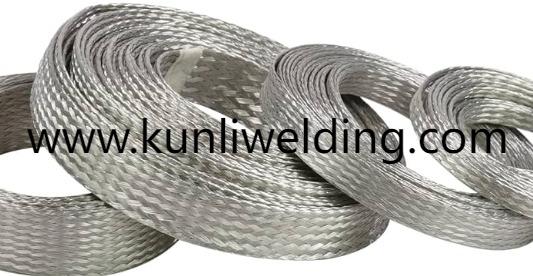The relentless drive towards lighter, stronger, and more efficient vehicles isn't just a trend; it's a fundamental shift reshaping aerospace and automotive engineering. At the heart of this transformation lies a critical component often overlooked: the aluminum alloy wire enabling the very structures that fly through our skies and glide on our roads. Meeting the exacting standards of these high-performance sectors requires innovation and precision, a challenge readily embraced by capable China Aluminum Alloy Wire Manufacturers . Their advanced offerings are proving indispensable in crafting the future of transportation.
The aerospace industry demands nothing short of perfection. Every gram shed translates directly into fuel savings, extended range, and enhanced payload capacity. Strict safety protocols necessitate unparalleled weld integrity, resisting fatigue under extreme pressures and temperatures. Corrosion resistance is paramount, especially given the harsh environments encountered during flight. Aerospace welding requires wires that deliver consistent, high-quality results, batch after batch, ensuring the structural soundness upon which lives depend. This intense focus on reliability and performance pushes manufacturers to refine their alloys and production processes continuously. The resulting welds are not just joints; they are lifelines ensuring the integrity of airframes and critical components for decades.
Simultaneously, the automotive revolution, particularly the explosive growth of electric vehicles, hinges on achieving maximum efficiency. Reducing vehicle weight is no longer optional; it's essential for extending battery range and improving overall performance. Aluminum alloys are rapidly replacing heavier steel in chassis, body panels, and crucial battery enclosures. This massive shift demands welding solutions that create robust, lightweight joints without compromising the inherent advantages of aluminum – its strength-to-weight ratio and excellent conductivity. Furthermore, the push towards sustainability drives the need for durable, corrosion-resistant structures that last longer, reducing overall lifecycle environmental impact. Manufacturers catering to this sector must provide wires that facilitate fast, reliable production while meeting stringent quality control standards essential for mass vehicle assembly.
Meeting these diverse yet equally demanding requirements necessitates specialized aluminum alloy wire solutions. Advanced formulations, such as the widely used 5356 and 4043 alloys, are tailored for specific applications. 5356 alloy wire offers superior strength and excellent corrosion resistance, making it ideal for structural marine applications and demanding aerospace welds where vibration resistance is crucial. Conversely, 4043 alloy wire provides excellent fluidity, reduced cracking sensitivity, and slightly higher ductility, often preferred for welding heat-treatable alloys common in intricate automotive components or cast parts. Choosing the appropriate alloy is vital, impacting weld strength, appearance, crack resistance, and overall component longevity. Leading manufacturers provide clear guidance on alloy selection based on the application, base metal composition, and desired mechanical properties. Consistent wire diameter and smooth feeding characteristics are also non-negotiable for automated welding processes dominating modern automotive and aerospace production lines.
Established manufacturers understand that high-quality aluminum wire production demands rigorous control throughout the entire process. From sourcing high-purity raw materials to implementing sophisticated melting, casting, and continuous drawing techniques, every step influences the final wire's performance. Advanced cleaning processes ensure the wire surface is free from contaminants like oil, grease, or oxides that could compromise weld integrity or cause feeding issues. Precise diameter control and consistent spooling are critical for seamless integration into high-speed automated welding systems prevalent in car factories and aircraft component manufacturing. Stringent quality assurance protocols, including chemical composition analysis and mechanical testing, guarantee that every batch meets the exacting specifications demanded by aerospace inspectors and automotive quality engineers. This unwavering commitment to process excellence builds trust and reliability.
The pressure for lighter, stronger, and more durable vehicles isn't diminishing; it's accelerating. Aerospace platforms push the boundaries of efficiency and range, while the automotive industry races towards electrification and enhanced sustainability. This dynamic landscape creates significant opportunities for sophisticated material suppliers. Manufacturers who consistently innovate – developing cleaner alloys, improving wire feeding characteristics for automation, or enhancing consistency for reduced waste – position themselves as indispensable partners. Understanding the unique welding challenges in complex battery tray fabrication or intricate aerospace structures allows manufacturers to offer targeted solutions and technical support, adding immense value beyond the wire itself. Building strong partnerships with OEMs and Tier 1 suppliers is key to driving mutual advancement.
As mobility evolves towards unprecedented efficiency and sophistication, the unseen enabler – high-performance aluminum alloy welding wire – plays an increasingly vital role. Producers dedicated to excellence are crucial contributors. Their ability to consistently deliver reliable, advanced wire solutions empowers aerospace engineers to build lighter, safer aircraft and enables automotive innovators to create the next generation of efficient electric vehicles. For industries demanding unwavering quality and partnership, exploring the capabilities of dedicated manufacturers is a strategic step forward. Discover the specific alloys and technical expertise supporting these advancements by visiting kunliwelding.com .

